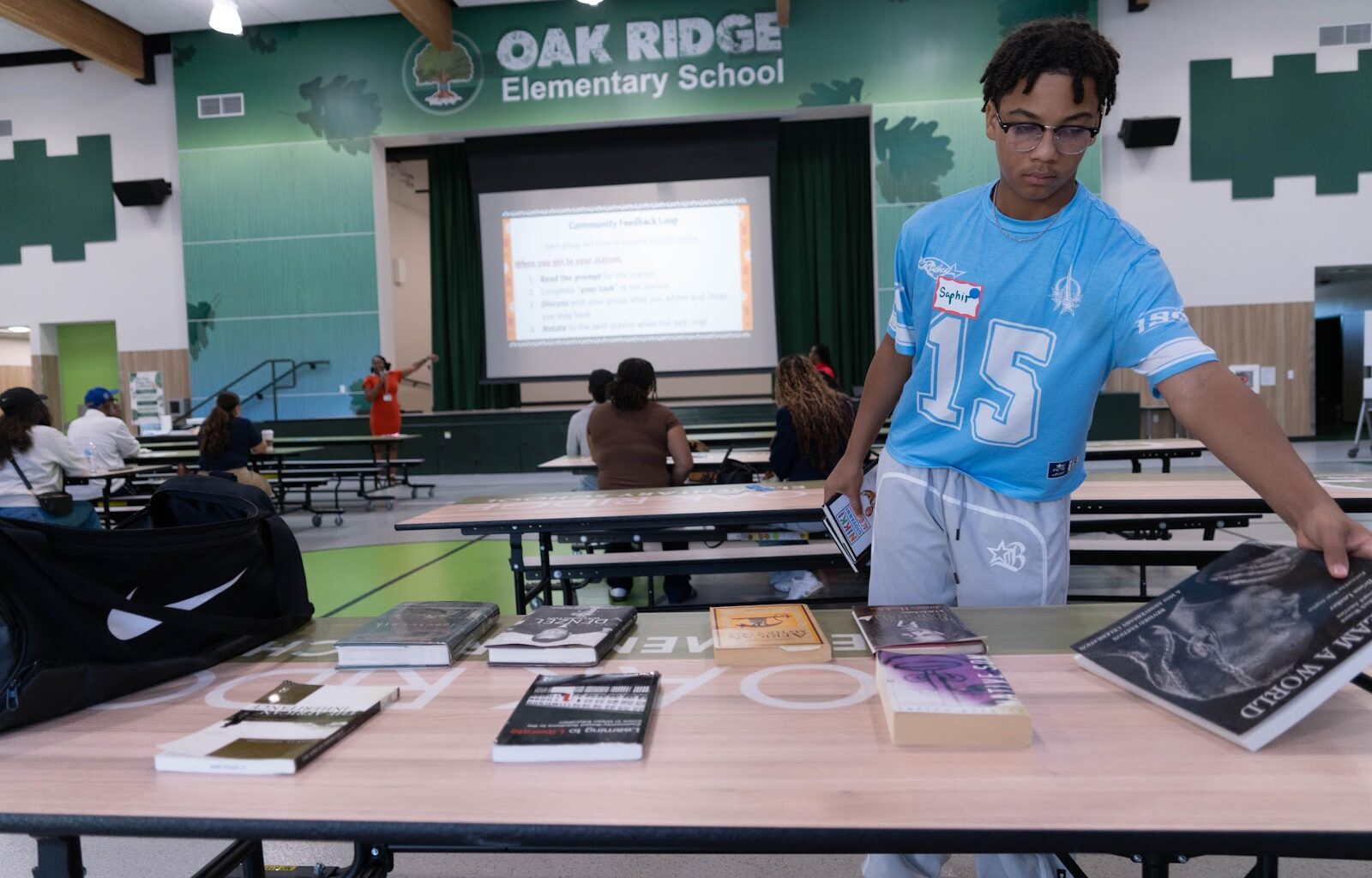Sacramento City Unified is moving forward with plans to launch an African American studies program by the 2027-28 school year, part of a broader effort to expand culturally relevant coursework.
The initiative follows a February 2024 school board vote committing to develop both advanced placement African studies and African American studies classes across the district.
Ashley Alexander, director of professional learning, literacy, English language arts and humanities at Sac Unified, said the move is part of the district’s ongoing commitment to equity, belonging, and culturally responsive education for all students.
Alexander added how the recent Black Student Landscape Analysis conducted by the Sacramento County Office of Education highlighted deep systemic inequities and the need for instruction that affirms and reflects the lived experiences of Black students.
She said the report uplifted student voices calling for an education that celebrates Black history, identity and excellence, and that the program directly responds to that call.
“It is designed to bridge the cultural gap identified in the report and create classroom experiences that affirm identity, deepen understanding, and honor the resilience of African American communities,” Alexander said. “In doing so, we are ensuring that Black history and Black brilliance are recognized as integral to the American story.”
In late 2024, a committee was formed to research other districts’ development and curation of African American courses.
By this year, the curriculum and instruction teams had gathered potential materials for the course and conducted an interest survey for the students grades 7-12. They also continued to meet with other community groups, parents and teachers to gather feedback about the course and how it will fit into schedules at school sites.
The committee is completing research and reviewing available instructional materials and then will draft a course of study.
The district plans this spring to submit the course of study for review to the UC Management System, where it will receive additional feedback.
Next school year, select high schools will host a pilot program of African American studies where additional adjustments and feedback can be given.
By spring 2027, finalized instructional materials will be submitted to the board of education for recommendation for adoption.
If passed and implemented, students in 11th grade will have the option of taking United States history or African American studies.
“The African American studies course will be closely aligned with California’s history-social science standards, ensuring that students meet state expectations for historical knowledge and civic understanding while centering African and African American voices,” Alexander said.
She added that the course will follow the chronological and thematic structure of the state’s U.S. history framework to show how the African American experience both shapes and is shaped by the nation’s development.
Students may explore topics such as African origins and civilizations’ impact on early global history, the transatlantic slave trade and how it shaped the Americas, resistence, abolition and the Reconstruction era in the Unifed States, the Harlem Rennaissance, and the Civil Rights Movement.
The course may also discuss modern movements for justice as well, such as Black Lives Matter.
In addition, the course will discuss contemporary Black identity and innovation.
“African American studies provides a more complete and honest understanding of American history,” Alexander said. “Too often, traditional curricula overlook or minimize the role of Black people in shaping our democracy, culture, and institutions. This course allows students to study the full arc of African American life — from ancient African civilizations to modern social movements — and to understand how Black innovation, leadership, and resistance have shaped every era of U.S. history.”
Parents and community members can get involved and provide feedback to the African American Studies Review Committee on subject matter they would like to see the course address. They also can provide local resources, oral histories, or guest speaker connections that will ground the course in Sacramento’s own Black history.
In addition, parents and community members are encouraged to attend community input sessions to share experiences, insights, and recommendations.
Around 20 people attended a community input section Oct. 11 at Oak Ridge Elementary, where participants gave feedback on potential local community partners the course can work with, and discussed course goals and specific topics.
Books the course may discuss also were displayed on a variety of topics, such as the Color Purple, African Mythology, poetry of Paul Lawrence Dunbar and others.
Books on various potential subject matter the course may include also were displayed, including “The Color Purple,” African mythology, and poetry by Paul Lawrence Dunbar and others.
“I feel really great about it,” said Heaven’Le James, one of the participants. “I do work with the [Race and Gender Equity] Project and we have been working on this research for quite some time, so it feels really good to see this all being implemented into spaces.”
Some Sac Unified school sites already are teaching students Black history this year through their AP African American studies class.
The AP class, for advanced placement, is an interdisciplinary course that examines the diversity of African American experiences through direct encounters with rich and varied sources, according to College Board, the company that helps produce the course.
The course formally launched this year, but has been in development through College Board since 2021.
In early May, students will be able to take a test based on their knowledge of the course. If they receive a three or higher, students can earn college credit and transfer it to the college they plan on attending.
“Many students, educators, and community members expressed a desire for a course that centers on African American history and culture, but is accessible to all, not just those enrolled in AP courses,” Alexander said.

Support for this Sacramento OBSERVER article was provided to Word In Black (WIB) by the Chan Zuckerberg Initiative. WIB is a collaborative of 10 Black-owned media that includes print and digital partners.
Related

